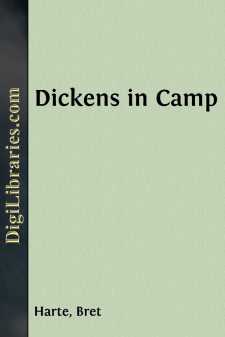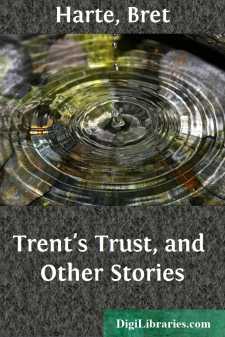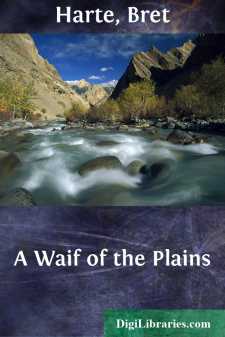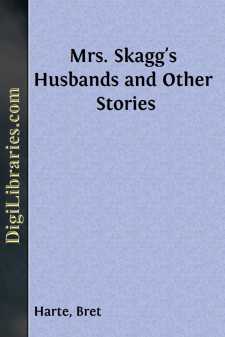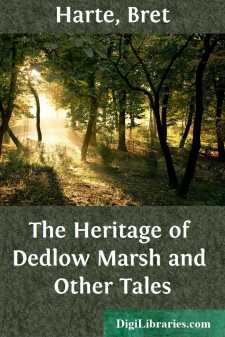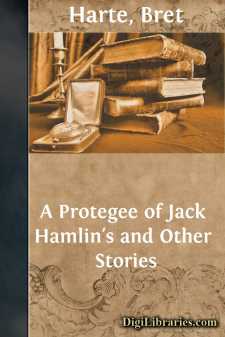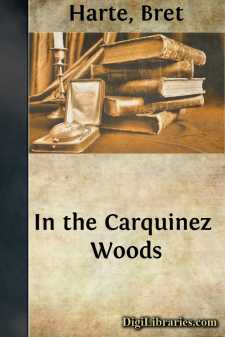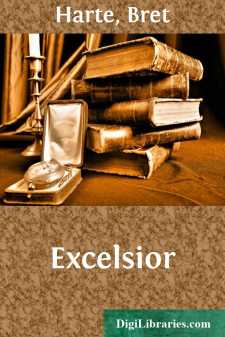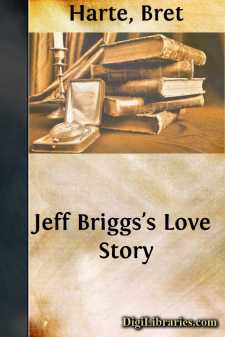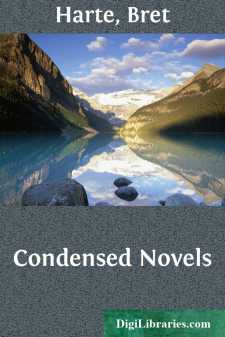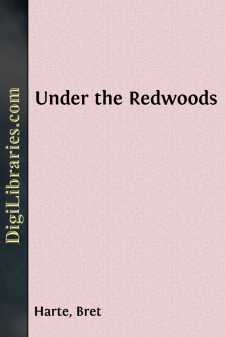Categories
- Antiques & Collectibles 13
- Architecture 36
- Art 48
- Bibles 22
- Biography & Autobiography 813
- Body, Mind & Spirit 142
- Business & Economics 28
- Children's Books 17
- Children's Fiction 14
- Computers 4
- Cooking 94
- Crafts & Hobbies 4
- Drama 346
- Education 46
- Family & Relationships 57
- Fiction 11829
- Games 19
- Gardening 17
- Health & Fitness 34
- History 1377
- House & Home 1
- Humor 147
- Juvenile Fiction 1873
- Juvenile Nonfiction 202
- Language Arts & Disciplines 88
- Law 16
- Literary Collections 686
- Literary Criticism 179
- Mathematics 13
- Medical 41
- Music 40
- Nature 179
- Non-Classifiable 1768
- Performing Arts 7
- Periodicals 1453
- Philosophy 64
- Photography 2
- Poetry 896
- Political Science 203
- Psychology 42
- Reference 154
- Religion 513
- Science 126
- Self-Help 84
- Social Science 81
- Sports & Recreation 34
- Study Aids 3
- Technology & Engineering 59
- Transportation 23
- Travel 463
- True Crime 29
Dickens in Camp
by: Bret Harte
Description:
Excerpt
F O R E W O R D
"Dickens In Camp" is held by many admirers of Bret Harte to be his masterpiece of verse. The poem is so held for the evident sincerity and depth of feeling it displays as well as for the unusual quality of its poetic expression.
Bret Hart has been generally accepted as the one American writer who possessed above all others the faculty of what may be called heart appeal, the power to give to his work that quality of human interest which enables the writer and his writings to live in the memory of the reading public for all time. By reason of that gift of his Bret Harte has been popularly compared with his great contemporary beyond the seas, greatest of all sentimentalists among writers of fiction, Charles Dickens.
Just how far the younger author selected the elder for his ideal, built upon him, so to speak, & held his example constantly before his mental vision, may be always a matter of debate amongst students of literature. There can be no question of the genuineness of the Californian writer's admiration of him who made the whole world laugh or weep with him at will. It is recorded Harte that at seven years of age he had read "Dombey & Son," and so, as one of his biographers, Henry Childs Merwin, observes, "began his acquaintance with that author who was to influence him far more than any other." Merwin further declares that "the reading of Dickens stimulated his boyish imagination and quickened that sympathy with the weak and suffering, with the downtrodden, with the waifs and strays, with the outcasts of society, which is remarkable in both writers. The spirit of Dickens breathes through the poems and stories of Bret Harte just as the spirit of Bret Harte breathes through the poems and stories of Kipling. Bret Harte had a very pretty satirical vein which might easily have developed, have made him an author of satire rather than of sentiment. Who can say that the influence of Dickens, coming at the early, plastic period of his life, may not have turned the scale?"
Another of his biographers, T. Edgar Pemberton, says his admiration for Charles Dickens never waned, but on the contrary, increased as the years rolled by. Harte himself, referring in later years to his childhood days, to his father's library and the books to which he had access, spoke of "the irresistible Dickens." Mr. Pemberton states, also, that Bret Harte always felt that he owed a deep debt of gratitude to Charles Dickens.
Small wonder, then, that, Bret Harte no matter how unconsciously, should have adopted here and there something of the style and some of the mannerisms of Dickens. This is directly traceable in his writings, even to the extent of his resorting, here and there, to oddities of expression which were peculiarly Dickensian.
The English writer, on his part, reciprocated in no small degree the feeling of admiration which his works had aroused in the young American. His biographer, John Forster, relates that Dickens called his attention to two sketches by Bret Harte, "The Luck of Roaring Camp" and "The Outcasts of Poker Flat," in which, writes the biographer, "he had found such subtle strokes of character as he had not anywhere else in later years discovered; the manner resembling himself but the matter fresh to a degree that had surprised him; the painting in all respects masterly and the wild rude thing painted a quite wonderful reality....


